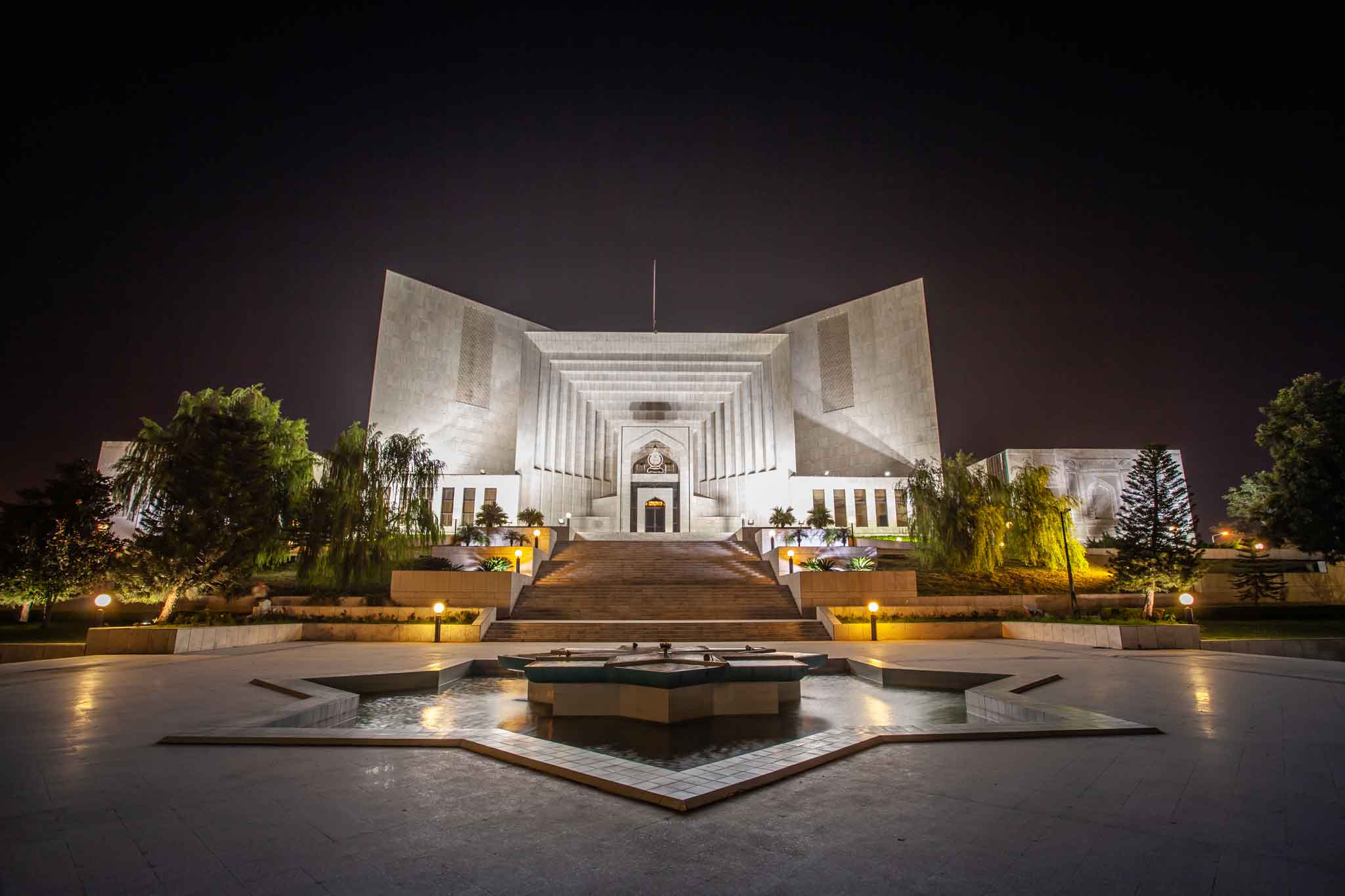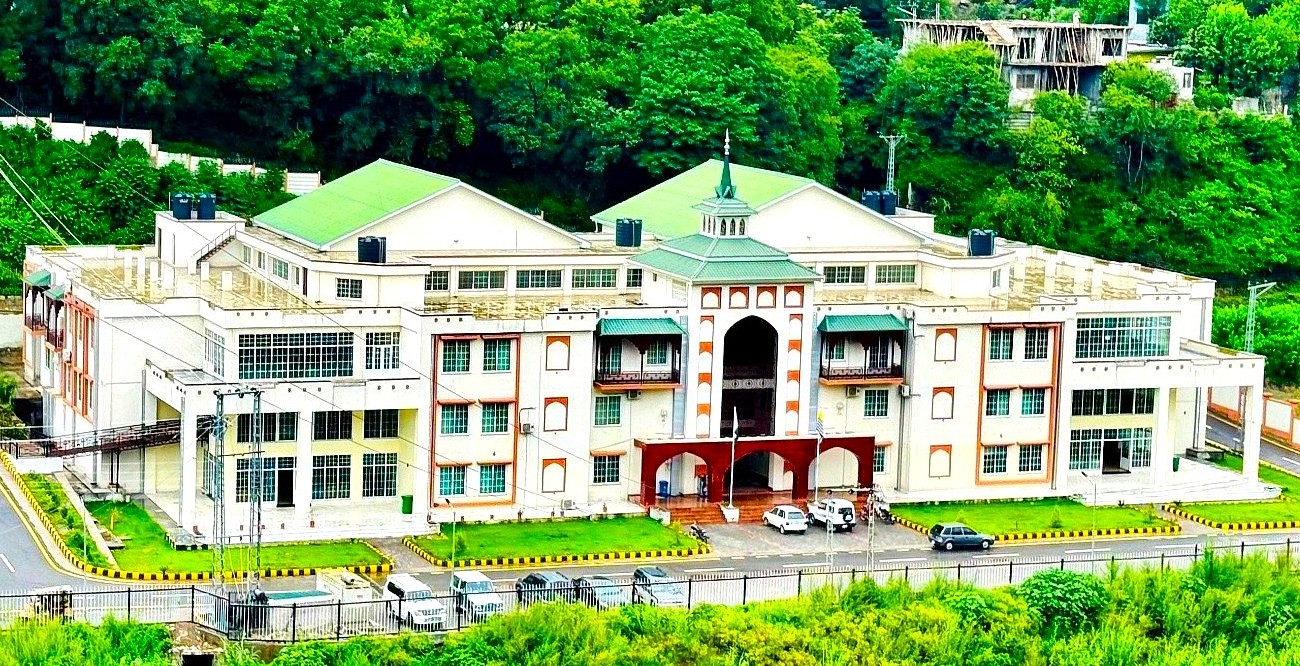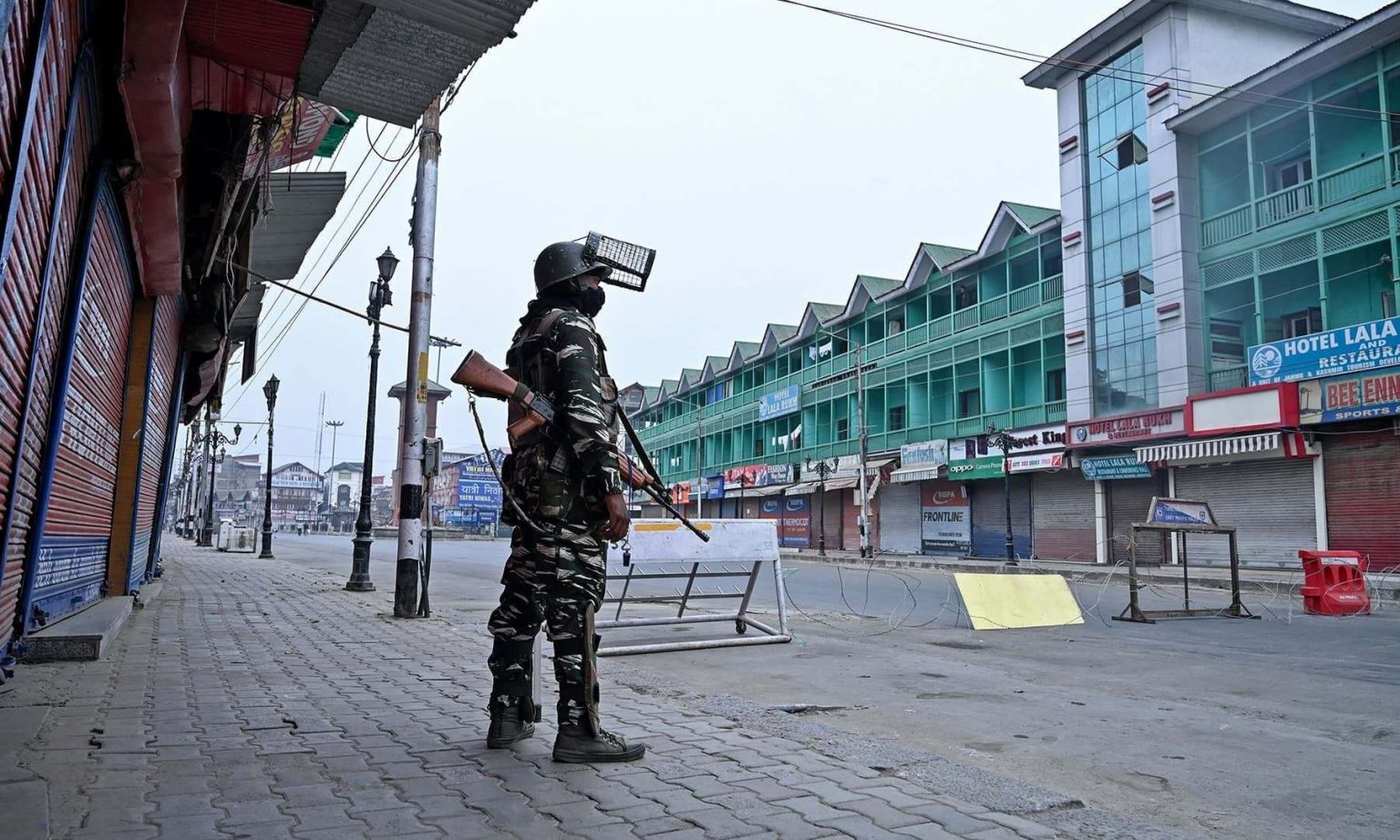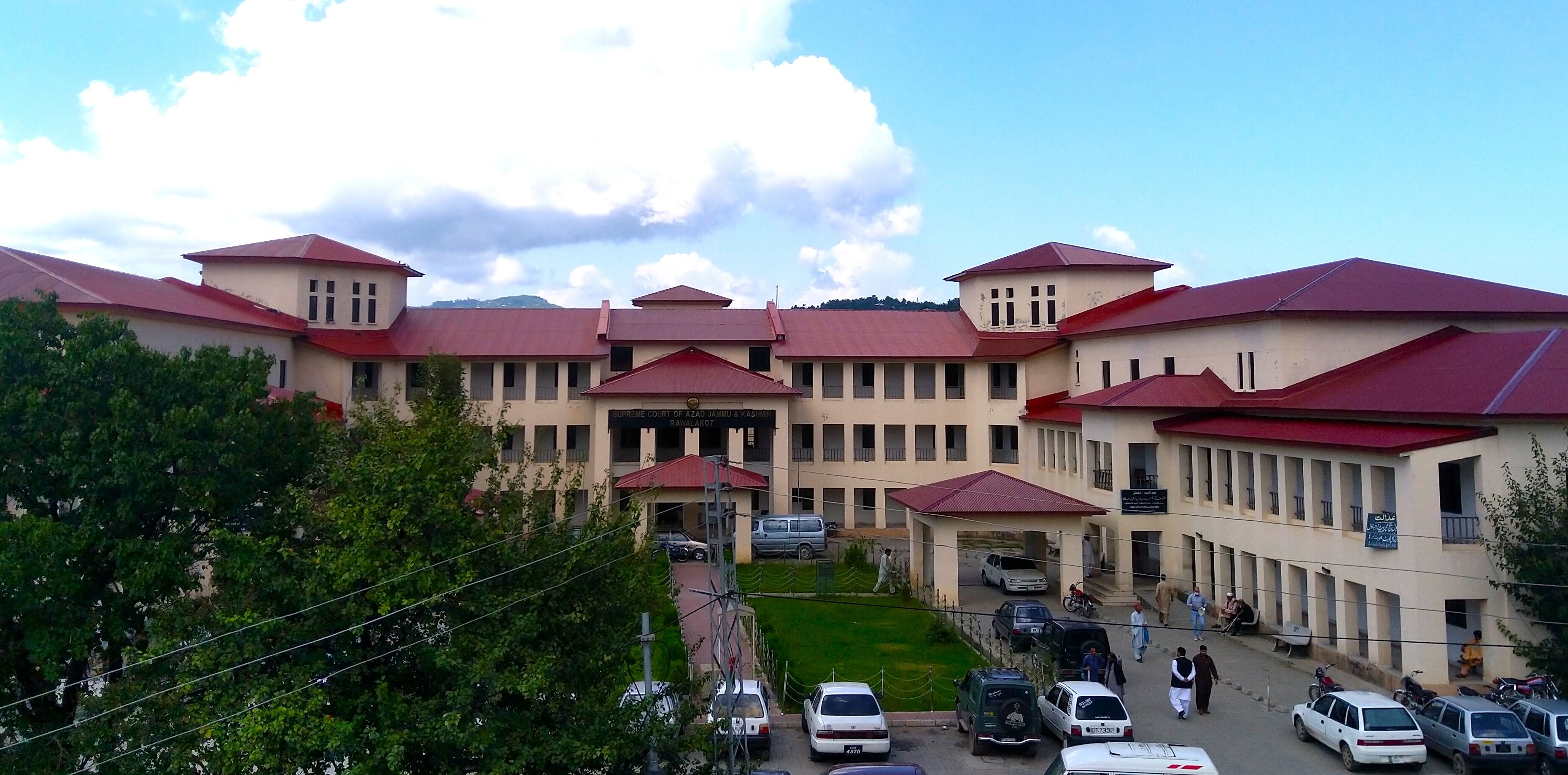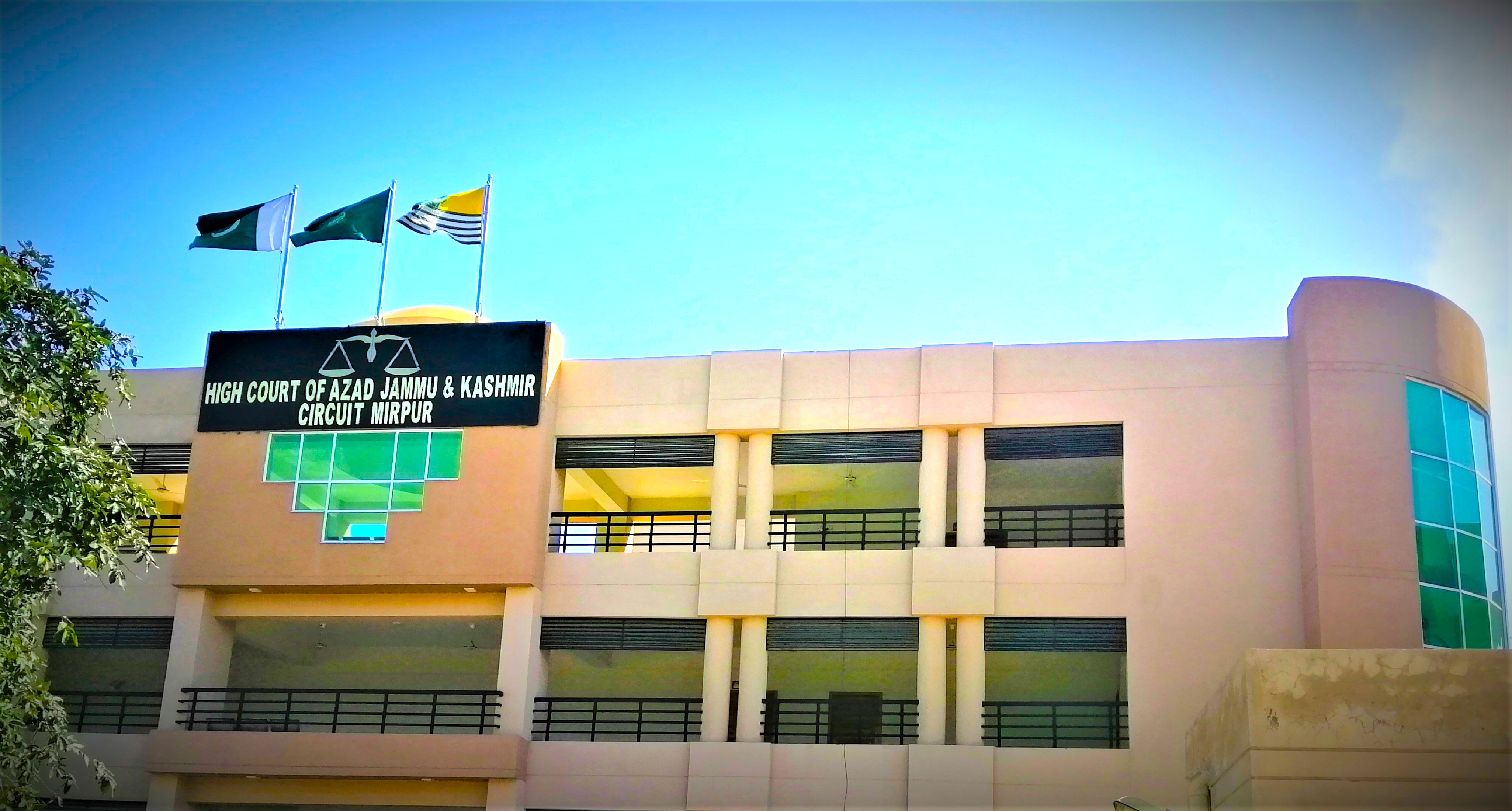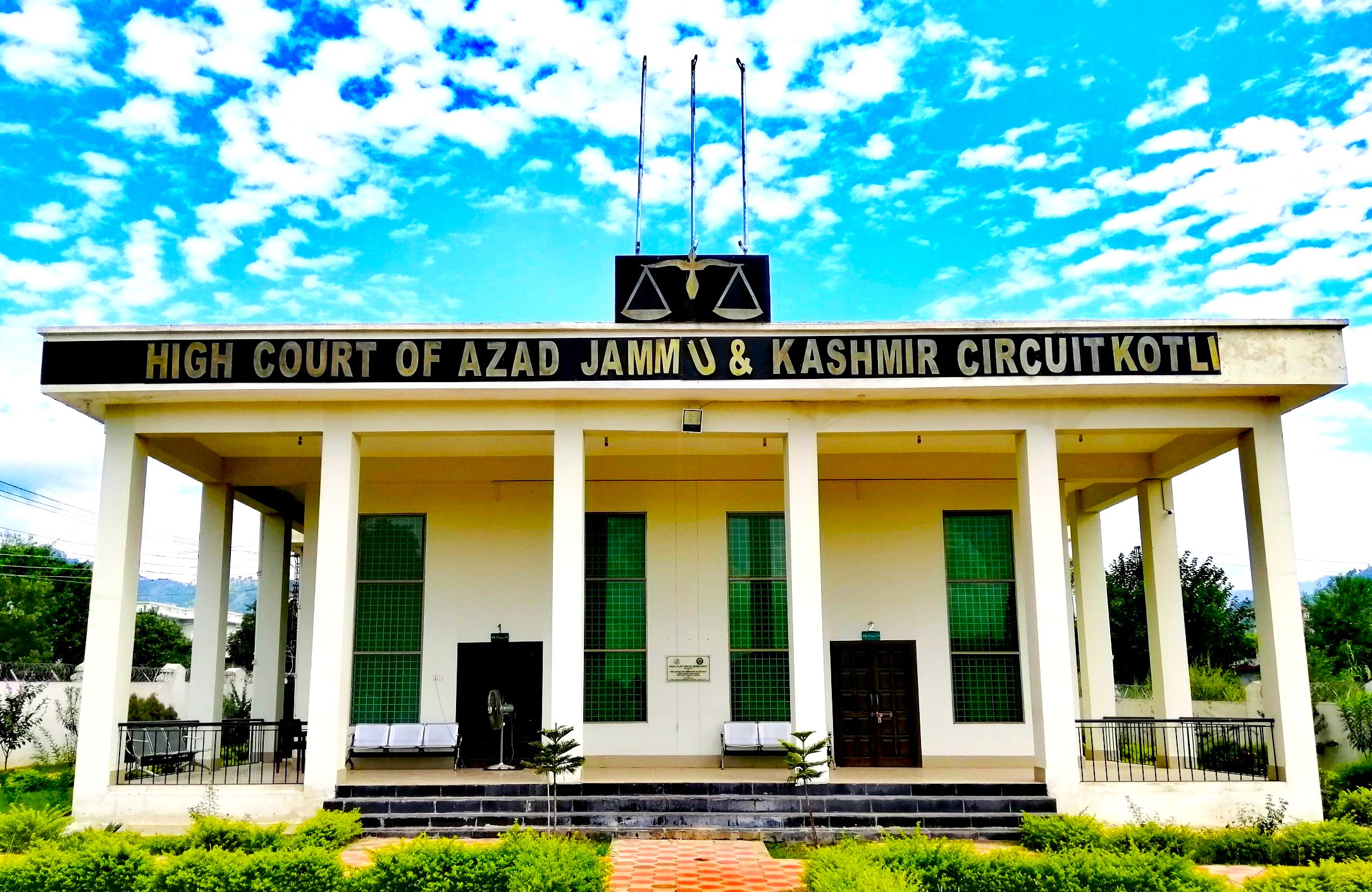The jurisdiction of High Court covers almost all civil and criminal matters cognizable under various laws. It has also jurisdiction to hear and determine any matter instituted under the Azad Jammu & Kashmir Interim Constitution Act 1974.
JURISDICTION & POWER OF HIGH COURT
- Home
- JURISDICTION & POWER OF HIGH COURT
JURISDICTION & POWER OF HIGH COURT
Original jurisdiction
A High Court under section 44 of the Azad Jammu & Kashmir Interim Constitution Act 1974, have following Jurisdiction which is reproduced as under: -
“44. Jurisdiction of High Court:- (1) The High Court shall have such jurisdiction as is conferred on it by this Act or by any other law.
(2) Subject to this Act, the High Court may if it is satisfied that no other adequate remedy is provided by law.-
(a) on the application of any aggrieved party, make an order.-
(i) directing a person performing functions in connection with the affairs of Azad Jammu and Kashmir or local authority to refrain from doing that which he is not permitted by law to do, or to do that which he is required by law to do, or
(ii) declaring that any act done or proceedings taken by a person performing functions in connection with the affairs of the State or a local authority has been done or taken without lawful authority, and is of no legal effect; or
(b) on the application of any person, make an order.-
- i) directing that a person in custody in Azad Jammu and Kashmir is brought before the High Court so that the Court may satisfy itself that he is not being held in custody without lawful authority or in an unlawful manner, or
- ii) requiring a person holding or purporting to hold a public office in connection with the affairs of Azad Jammu and Kashmir to show under what authority of law claims to hold that office, or
(c) on the application of any aggrieved person, make an order giving such directions to the person or authority, including the Council and the Government, exercising any power or performing any function in, or in relation to, Azad Jammu and Kashmir as may be appropriate for the enforcement or any of the fundamental rights conferred by this Act.
(3) An order shall not be made under sub-section (2) of this section on application made by or in relation to a person in the Defence Service in respect of his terms and conditions of service, in respect of any matter arising out of his service in respect of any action in relation to him as a member of the Defence Services.
(4) Where.-
(a) application is made to the High Court for an order under clause (a) or clause (c) of sub-section (2); and
(b) The Court has reason to believe that the makig or an jinterim order would have the effect of prejudicing or interfering with the carrying out of a public work or otherwise being harmful to the public interest, the Court shall not make an interim order unless the Advocate General or any officer authorized by him in this behalf has been given an opportunity of being heard, is satisfied that the making of the interim order would not have the effect referred to in clause (b) of this sub-section.
(5) In this section, unless the context otherwise requires, ‘Person’ includes any body politic or corporate, any authority of or under control of the Council or the Government and any Court or tribunal other than the Supreme Court of Azad Jammu and Kashmir, the High Court or a Court or tribunal established under a law relating to the Defence Services.”
The jurisdiction conferred on the High Court under Section 44 is known as the writ jurisdiction. Jurisdiction to protect Fundamental rights of persons is also conferred on the High Court under this section. Fundamental Rights of persons are listed under sub-section (4) of Section 4 of the Constitution. The same are briefly stated as under:
- Security of person;
- Safeguard as to arrest and detention;
- Slavery and Forced Labour prohibited;
- Protection against retrospective punishment;
- Freedom of Movement;
- Freedom of assembly;
- Freedom of association;
- Freedom of trade, business or profession;
- Freedom of speech;
- Freedom of religion;
- Safeguard against taxation for purposes of any particular religion;
- Safeguard as to educational institutions in respect of religion etc.
- Right of State subjects to acquire, hold and dispose of property;
- Protection of property;
- Equality of State subjects;
- Non-discrimination in respect of access to public places;
- Safeguard against discrimination in services;
- Abolition of untouchability.
Appellate Jurisdiction
High Court has appellate jurisdiction against the judgments, decisions, decree and sentences passed by the civil and criminal Courts.
Procedural Rule Making Powers of The Court
Under Sec 44-A of the AJ&K Interim Constitution act 1974, the High Court is empowered to make rules regulating the practice and procedure of the Court or of any court subordinate to it. Resultantly, the High Court of Azad Jammu and Kashmir Procedure Rules were framed in 1984. These rules comprise XXI chapters containing 171 rules. The courts’ working policy and procedure is explained in detail therein. Constitution of benches, classification and nature of the cases, jurisdiction of single and larger benches is regulated under these rules. Functions and powers of the Chief Justice, the vacation judge and the registrar with regard to filing of writs, miscellaneous applications, custody of record in criminal cases etc have also been provided therein.
44-A. Rules of Procedure: Subject to this Act and law, the High Court may in consultation with the government, make rules regulating the practice and procedure of the Court or of any court subordinate to it.
High Court Employees Rules
Under Sec 47-A of the Constitution, the Supreme Court and the High Court with the approval of the President, are empowered to make rules providing for the appointment of employees of the Court and for their terms and conditions of employment. In exercise of above powers, the Azad Jammu and Kashmir High Court Establishment (Appointment and Conditions of Service) Rules were framed on 19-10-1994. In 2011 High Court Establishment rules 1994 were repealed and new rules were framed. These rules providing method and mode of appointment, promotion, seniority, grant of selection/higher grades, condonation of service, procedure of disciplinary proceedings, procedure with regard to appeals, review petitions, revision and special powers of the chief justice etc. The Judicial Selection Boards and Selection Committees have been constituted in pursuance of the rules
47-A. Employees of the Court: - The Supreme Court and the High Court with the approval of the President may make rules providing for the appointment of employees of the Court and for their terms and conditions of employee.
Decision of High Court Binding on Subordinate Court:-
Under section 44-B of the Azad Jammu & Kashmir Interim Constitution Act, any decision of a High Court is binding on all Courts subordinate to it.
44-B:- Decision of High Court binding on subordinate Court:- Subject to Section 42-B, any decision of the High Court shall, to the extent that it decides a question of law or is based upon or enunciates a principle of law, be binding on all courts subordinate to it.
Financial Autonomy:
The Azad Government of the State of Jammu and Kashmir vides notification No. FD/R/(184)/06 dated 2.3.2006 delegated full financial powers to Hon’ble Chief Justice of the High Court within the allocated budget including creations and up gradation/down gradation of posts.
